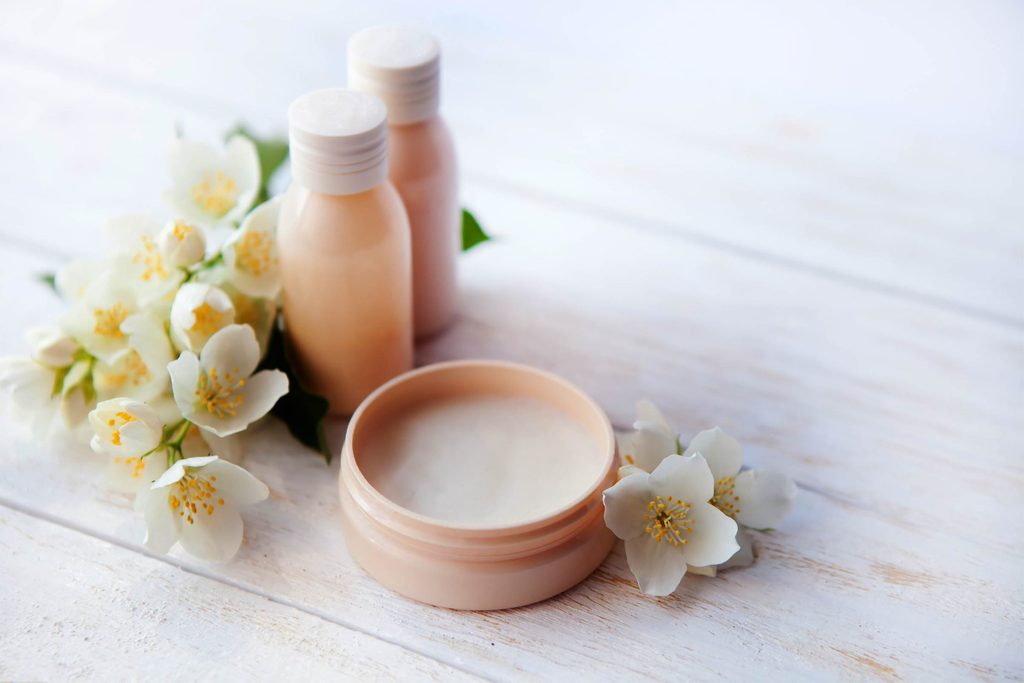Which One Works Best—Body Butter, Body Lotion, or Body Oil?
Updated: Apr. 14, 2021
We're demystifying the differences between our favorite moisturizing products, so you can grab the right bottle, tube, or tub at the right time.

With so many formulas lining the beauty aisle shelves, finding the right moisturizing product can be daunting. Beyond the bazillion brands available, there are also numerous formulas, including three key moisturizer types—body oil, body lotion, and body butter—and while none of them is the best across the board, each may be better suited for different skin needs.
It’s important to realize that all three have unique viscosities (thicknesses), which should influence where and how you’d use them. “Body oil is usually the lightest feeling, with lotion in the middle, and butter being the thickest and richest,” says skin biologist Sergio Nacht, PhD, of Skinphonic. “All three consistencies result in a very different feel when applied to your skin,” he adds.
Body Oil
“Body oils are the most emollient, meaning they soften and nourish the skin,” says Skincare Educational Expert Sara LaBree. “They also resemble the natural oils in our skin, so are easily absorbed.” Deanne Mraz Robinson, MD, of the Connecticut Dermatology Group adds that oils are not water-based, which means they may be more likely to cause breakouts. “The majority of skin oils are easily absorbed and are usually non-comedogenic, meaning they don’t clog pores, but if you are more acne-prone, I would avoid oils in acne-prone areas such as the face, chest, and back,” Dr. Robinson advises. Instead, body oils like Jurlique’s Rose Body Oil and Neutrogena Body Oil Light Sesame Formula are best for dry, rough skin, and are ideally applied to warm, damp skin, like after a shower or bath. Body oils are also versatile, according to LaBree, in that they can be used for body and massage treatments.
Body Lotion
Lotions, on the other hand, are good as a sheer moisturizer and are better for skin that isn’t as dry, or for people who tend to have oilier skin, according to Dr. Robinson. LaBree adds that “body lotions like Jurlique’s Rose Body Care Lotion are great for use in hotter, more humid climates or seasons, as they tend to absorb quickly and won’t ‘sit’ on the skin.” A budget pick new to the market is Everyone Body Lotion—it’s natural and organic with zero chemical nasties.
Body Butter
And finally, body butters are the most occlusive, meaning they provide the strongest possible protective barrier to seal and lock in moisture, according to LaBree. They’re “best used on dry and delicate skin, or in a dry climate where moisture can escape from the skin,” she advises. This means that you should definitely turn to body butter and this one skin-care move during winter, when environmental aggressors are most likely to leave your skin parched. Our high-end pick is Kiehl’s Creme de Corps Soy Milk & Honey Whipped Body Butter; our budget pick is Burt’s Bees Mango & Orange Body Butter. Dr. Robinson adds that what makes butters so effective is that they contain not only moisturizers, but also oils or fatty acids derived from plant sources, such as shea butter, for deeper hydration.











